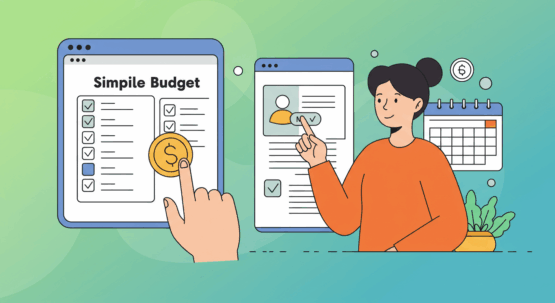Most of us want to feel more in control of our money, but it rarely comes down to one big move. More often, it is the small, everyday decisions that add up to real financial change. Imagine making one smart money choice every day for a week. By the end of those seven days, you would not just have saved some cash, but also started building habits that could reshape your financial future.
Let’s walk through seven decisions, one for each day of the week, that you can start using right away.
Monday – Pack Your Lunch Instead of Buying It
Think about it: a café sandwich, drink, and snack can easily cost $12 to $15. Packing a homemade lunch, on the other hand, may only cost $3 to $5. According to a 2022 survey by CNBC, the average American spends around $67 a week eating lunch out. That’s over $3,500 a year.
By packing your lunch, you keep that money in your pocket. All it takes is a little planning and the right containers that make meal prep easy. Over time, those savings can be redirected toward debt payments, an emergency fund, or even investments.
Tuesday – Make an Extra Payment Toward Debt
Debt grows because of interest. Even a small extra payment can cut into the balance and reduce how much interest you owe in the long run. For example, paying just $20 extra on a credit card each month can shave months off repayment.
This habit not only reduces your financial stress but also builds momentum. Every extra payment is a reminder that you are actively taking back control.
Wednesday – Cancel One Unused Subscription
By midweek, you are already building savings momentum. Now it is time to tackle waste that hides in plain sight: subscriptions. Streaming platforms, phone apps, and gym memberships often sneak by because the charges feel small. But those $10 or $15 fees add up quickly.
Bankrate reports that the average person underestimates their monthly subscription spending by nearly $100. Taking just five minutes to review your bank statement could reveal services you have not used in months. Canceling even one or two subscriptions frees up money for something you actually value.
Thursday – Transfer Money into Savings
Savings grow when you make them a priority. Setting up an automatic transfer, even as small as $25 or $50 per paycheck, creates a steady habit. By Thursday, send a little extra into a high-yield savings account.
This is not about the amount. It is about creating a rhythm of paying yourself first. Over time, that regular transfer builds a financial cushion you can rely on when unexpected expenses pop up.
Friday – Skip Impulse Shopping
By Friday, the weekend is calling and it is tempting to treat yourself with a quick online buy. Retailers know this and often send out promotions late in the week. The problem is that impulse spending eats away at long-term goals.
Instead, wait 24 hours before buying something outside your usual budget. Most of the time, the desire will pass, and you will save money simply by pausing. This single habit can protect your finances more than you realize.
Saturday – Cook Dinner at Home
Saturday night often feels like the perfect time to go out. But restaurants, drinks, and tips can easily cost $50 to $100 for two people. Cooking at home costs a fraction of that. With a little creativity, you can even make it a fun experience by trying a new recipe.
Investing in some basic kitchen tools or reusable meal prep items makes cooking easier and enjoyable. The money saved can be set aside for your goals, and the shared time with family or friends adds its own kind of value.
Sunday – Review Your Weekly Spending
End the week by reflecting on where your money went. This does not need to be complicated. Sit down for 15 minutes with your bank app or a budgeting tool and review your week.
You will start to notice patterns: maybe your lunches out are costing more than you thought, or a particular subscription is still sneaking by. Reflection is what allows you to make adjustments for the next week. Over time, this weekly habit helps you stay consistent and confident.
Final Thoughts
Seven days. Seven small decisions. Each one seems simple on its own, but together they create a foundation for better money habits. By cooking at home, packing your lunch, canceling wasteful subscriptions, or making that small extra debt payment, you are proving to yourself that financial stability comes from intentional choices.
The best part? This challenge is repeatable. Start again next week, then the week after. These daily decisions, practiced over time, become a lifestyle that supports long-term goals like investing, homeownership, or simply having peace of mind with your money.
If you are ready to take the next step and put those savings to work, check out our guide on what to do with $1000 to start investing
⚠️ Disclaimer: I am not a financial adviser. This is simply what I would do personally. Please do your own research before making financial decisions.










